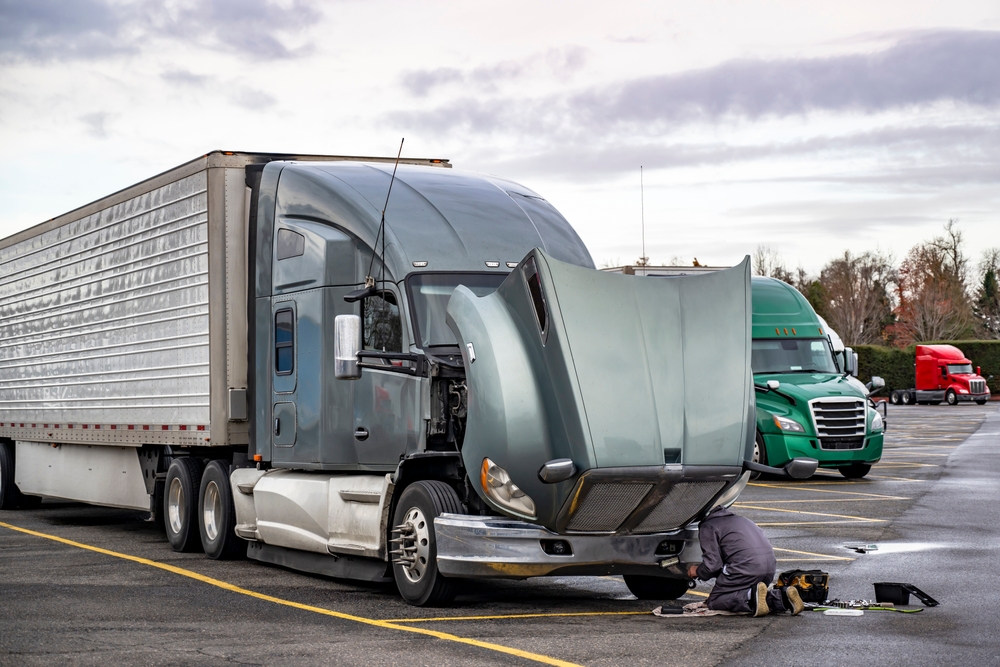What Can I Sue for in a Truck Accident?
Truck AccidentsIf you have been injured in an accident with a large commercial truck, a truck accident lawyer can help you pursue financial compensation, legally known as damages, to cover your medical bills, lost income, property damage, and the personal suffering you’ve endured. The specific compensation available depends on the unique details of your case, but the goal is to help restore the stability and security that the accident took from you.
Key Takeaways about What You Can Sue for in a Truck Accident
- Individuals injured in a truck accident may pursue compensation for both economic and non-economic damages.
- Economic damages are intended to cover tangible financial losses, such as medical treatment, lost wages, and vehicle repairs.
- Non-economic damages address intangible harms like physical pain, emotional distress, and a diminished quality of life.
- In cases involving gross negligence or intentional misconduct, punitive damages might be awarded to punish the at-fault party.
- Liability in a truck accident case can extend beyond the driver to include the trucking company, cargo loaders, or equipment manufacturers.
Understanding Damages in a South Carolina Truck Accident Claim
After a serious collision involving a semi-truck or other large commercial vehicle, the costs can pile up quickly. You may be facing hospital bills, unable to work, and dealing with physical and emotional pain. In a truck accident claim, the money you seek to cover these losses is referred to as “damages.” The purpose of seeking damages is not to punish someone but to provide the financial support necessary to make you as whole as possible after the incident.
In South Carolina, damages are generally broken down into two main categories: economic and non-economic. A third, less common type, called punitive damages, may also apply in certain situations. Understanding each category helps clarify what you can sue for and why.
A Closer Look at Economic Damages You Can Sue For

Economic damages are the most straightforward type of compensation because they are tied to specific, calculable financial losses. These are the bills, receipts, and income statements that show the direct monetary cost of the accident. Think of these as the tangible expenses that have a clear price tag.
Your claim can seek recovery for a wide range of these costs, including both your current and future needs. Common examples of economic damages include:
- Past and Future Medical Expenses. This covers everything from the initial ambulance ride and emergency room visit to ongoing physical therapy, surgeries, prescription medications, and any necessary medical equipment. If your injuries will require long-term care, your claim can account for those future costs as well;
- Lost Wages. If your injuries forced you to miss work, you can sue for the income you lost during your recovery period. This is typically calculated based on your pay stubs and work history;
- Loss of Earning Capacity. Some injuries are so severe that they permanently affect your ability to do your job or work at all. In these situations, you can seek damages for the future income you will no longer be able to earn;
- Property Damage. This includes the cost to repair or replace your vehicle and any other personal property that was damaged in the crash, such as a laptop or phone;
- Other Out-of-Pocket Costs. Many other expenses can arise from a serious injury. These might include the cost of hiring help for household chores you can no longer perform, transportation to medical appointments, or modifications to your home to accommodate a disability.
It is crucial to keep detailed records of every expense related to your accident, as this documentation provides the foundation for calculating your economic damages.
Non-Economic Damages: Accounting for the Human Cost
While economic damages cover your financial losses, non-economic damages are meant to compensate for the personal, non-financial ways the truck accident has impacted your life. These losses don’t come with a receipt, but their effect on your well-being is often just as significant, if not more so. A crash on a busy road like I-26 near Charleston can leave scars that aren’t visible.
Because these damages are subjective, they can be more challenging to calculate, but they are a critical part of a personal injury claim. They acknowledge the human suffering involved in a serious accident.
What are considered non-economic damages?
These damages can include several different types of harm.
- Pain and Suffering. This refers to the physical pain, discomfort, and general suffering caused by your injuries. It includes not only the pain from the initial impact but also the ongoing pain during your recovery.
- Emotional Distress and Mental Anguish. A traumatic event like a truck accident can cause significant emotional harm. This can include anxiety, depression, fear, sleep disturbances, and post-traumatic stress disorder (PTSD).
- Loss of Enjoyment of Life. Your injuries might prevent you from participating in hobbies, activities, and life events that once brought you joy. This damage category compensates you for this diminished quality of life.
- Loss of Consortium. This is a specific type of claim that can be made by the spouse of an injured person. It addresses the negative impact the injuries have had on the marital relationship, including the loss of companionship, affection, and intimacy.
Placing a dollar value on these personal losses is complex. Attorneys and insurance companies often use various methods to arrive at a figure, but it ultimately depends on the severity of your injuries and how they have fundamentally changed your life.
What About Punitive Damages?
In most truck accident cases, the focus is on compensating the injured person for their losses. However, in rare instances, a third type of damages may be awarded: punitive damages. Unlike economic and non-economic damages, punitive damages are not meant to compensate you. Instead, their purpose is to punish the at-fault party for extremely reckless behavior and to deter others from acting in a similar way.
Under South Carolina law, punitive damages are only available if the defendant’s conduct is found to be willful, wanton, or reckless. This is a much higher standard than simple carelessness, or negligence. Examples in a truck accident case could include:
- A truck driver was under the influence of drugs or alcohol;
- The trucking company knowingly hired a driver with a long history of safety violations;
- A company intentionally falsified maintenance records to keep an unsafe truck on the road.
Because the standard of proof is so high, punitive damages are not awarded in every case. However, when the evidence shows a conscious disregard for the safety of others, they can be a powerful tool for holding grossly negligent parties accountable.
Identifying All Liable Parties in a Truck Accident

One of the most complex aspects of a truck accident claim is determining who is legally responsible. While it might seem like the truck driver is the only one at fault, the reality is that multiple parties could share the blame. Commercial trucking is a complex industry with many moving parts, and a failure at any point in the chain of command can lead to a dangerous crash.
A thorough investigation may reveal that one or more of the following parties are liable:
- The Truck Driver. The driver’s actions are often the most direct cause of an accident, whether due to speeding, distracted driving, fatigue, or violating traffic laws;
- The Trucking Company (Motor Carrier). The company that employs the driver has a duty to ensure its operations are safe. They can be held liable for negligent hiring, inadequate training, poor supervision, or encouraging drivers to violate federal hours-of-service rules to meet deadlines;
- The Owner of the Truck or Trailer. Sometimes, the driver or trucking company does not own the equipment they are using. If the owner failed to properly maintain the vehicle, they could be held responsible;
- The Cargo Loader. If cargo is improperly loaded or secured, it can shift during transit, causing the driver to lose control. The company responsible for loading the trailer could be at fault;
- A Parts or Vehicle Manufacturer. If the accident was caused by a defective part, such as faulty brakes or a tire blowout, the manufacturer of that component could be liable;
- A Maintenance or Repair Shop. A third-party company hired to service the truck could be held responsible if their negligent repair work contributed to the crash.
Identifying every potentially liable party is essential for ensuring you have the best chance at a full financial recovery.
The Role of Insurance in Your Truck Accident Claim
Commercial trucks are required by the Federal Motor Carrier Safety Administration (FMCSA) to carry substantial insurance policies, often with coverage limits of $1 million or more. While this might sound like good news, it also means that you will be up against a powerful insurance corporation with a team of adjusters and lawyers whose primary job is to protect their company’s bottom line.
These companies are not in the business of paying out fair compensation willingly. They often start their investigation immediately, looking for any reason to deny your claim or reduce its value. They may argue that your injuries aren’t as severe as you claim, that you were partially at fault for the accident, or that some of your medical treatment was unnecessary. Their goal is to settle your case for as little money as possible, and they have vast resources to achieve that goal.
This is why having an advocate on your side is so important. An experienced attorney understands these tactics and can build a strong case supported by evidence to counter the insurance company’s arguments. They can handle the communications and negotiations for you, allowing you to focus on your physical and emotional recovery.
FAQs: What Can I Sue for in a Truck Accident?
Here are answers to some common questions people have after being in a collision with a large truck.
How long do I have to file a truck accident lawsuit in South Carolina?
In South Carolina, you generally have three years from the date of the accident to file a personal injury lawsuit. This time limit is known as the statute of limitations. If you miss this deadline, you will likely lose your right to sue for damages, so it’s important to act promptly.
What if I was partially at fault for the truck accident?
South Carolina follows a modified comparative negligence rule. This means you can still recover damages as long as your share of the fault is not greater than the fault of the other party (or parties). Your total compensation award will be reduced by your percentage of fault. For example, if you are found to be 20% at fault, your award will be reduced by 20%.
What kind of evidence is important in a truck accident case?
Strong evidence is the key to a successful claim. This can include the official police report, photos and videos from the accident scene, witness statements, medical records, and expert testimony. In truck accident cases, specific evidence like the truck’s black box data, driver logs, and maintenance records is also critically important.
How much does it cost to hire a lawyer for a truck accident?
Most personal injury lawyers work on a contingency fee basis. This means you do not pay any attorney’s fees upfront. The lawyer’s fee is a percentage of the total amount of money they recover for you, whether through a truck accident settlement or a court verdict. If you don’t win your case, you typically owe no attorney fees.
Discuss Your Case with Our South Carolina Truck Accident Attorneys

The time following a serious truck accident can be difficult and confusing. While you focus on healing, a legal team can focus on protecting your rights and fighting for the compensation you need. At Hughey Law Firm, we have a history of holding negligent trucking companies and their insurers accountable, having recovered over $300 million for our clients. We understand the tactics insurance companies use and are prepared to counter them at the negotiating table or in the courtroom.
If you’re unsure where to start or what to ask during your first consultation, our attorneys can guide you through the most important questions for a truck accident lawyer, from how fault is determined to what evidence strengthens your case.
We believe that getting skilled legal representation should be affordable. That’s why we offer a “no win, no fee” promise, also known as a contingency fee arrangement. You pay us nothing unless we recover money for you. This allows you to get the help you need without worrying about upfront costs.
If you’ve been injured in a truck accident in the Charleston, Mt. Pleasant, or surrounding South Carolina areas and have been searching for a “truck accident lawyer near me,” we invite you to learn how we can help. Contact Hughey Law Firm today at (843) 881-8644 or through our online form for a free, no-obligation consultation. Let us handle the legal burdens so you can focus on what matters most—your recovery.
Nathan Hughey, an attorney and fourth-generation South Carolinian, founded Hughey Law Firm in 2007. Before that, he spent five years defending nursing homes and insurance companies. Leveraging his experience, he now advocates for those injured or wronged by such entities, securing over $290 million in verdicts and settlements.
